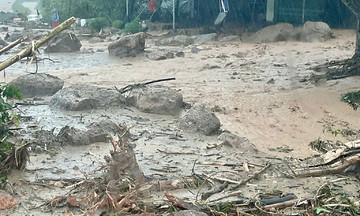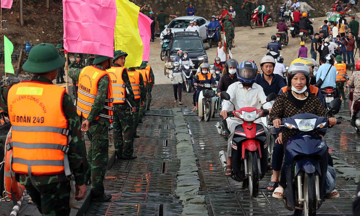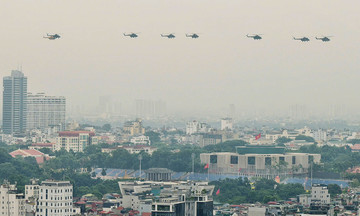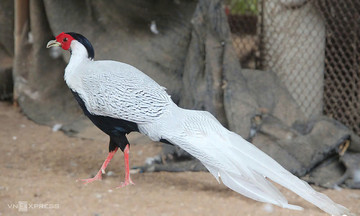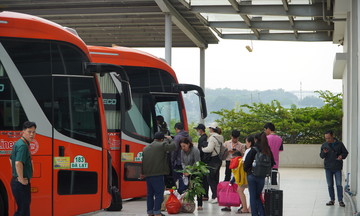Tran Minh Loc, a mango farmer with almost 30 years of experience in Dong Thap province, recalls a time when his trees flowered and fruited naturally. Now, to boost yields during each 4-6 month harvest season, he has to spray pesticides 15-18 times, including growth stimulants, fruit nutrients, and insecticides.
"Thrips are the hardest to deal with. They seem impervious to continuous spraying. Without pesticides, the entire crop is lost," Loc said. He has to constantly switch thrips insecticides due to growing resistance. Each spraying costs around one million VND/ha (42 USD/ha), with pesticides accounting for 50% of his production costs.
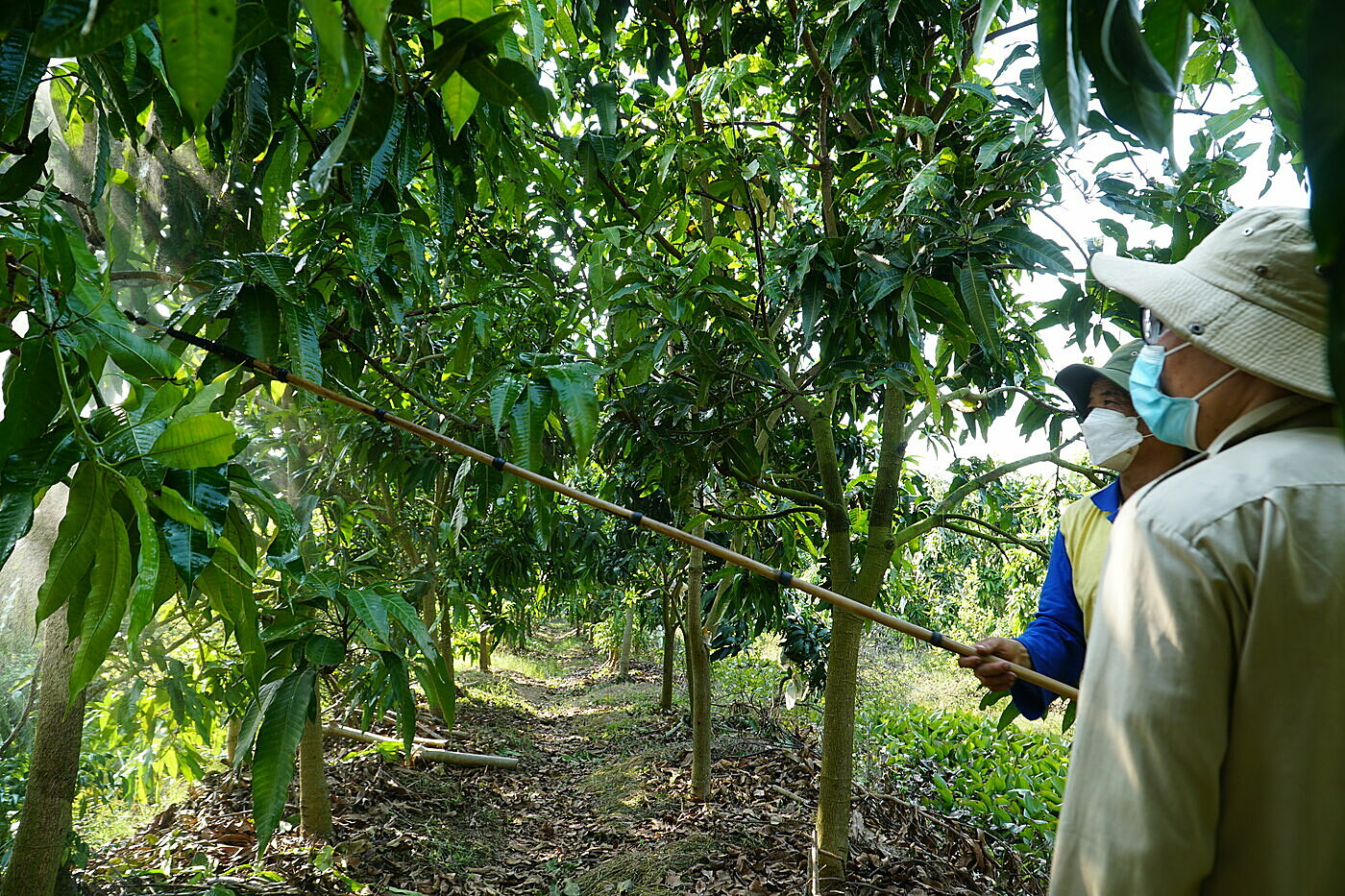 |
Loc spraying pesticides on his mango trees. Photo: Ngoc Tai |
Loc spraying pesticides on his mango trees. Photo: Ngoc Tai
Rice farmers face a similar struggle. Tran Van La, also from Dong Thap, says he sprays 7-8 times during each 3-month rice season to combat pests like the golden apple snail, brown planthopper, rice blast disease, and onion flies. In some years, severe infestations combined with low rice prices mean his earnings don't cover the cost of pesticides.
"Pests are harder to control now, especially the brown planthopper. Using the wrong pesticide can destroy the entire crop," La lamented.
Durian requires even more frequent spraying, sometimes weekly. Missing even one application can result in pests devouring new shoots, delaying the flowering cycle by months.
Vietnam currently has 4,844 registered pesticide products, comprising 1,918 active ingredients. This represents an increase of 309 products and 98 active ingredients since 2023. Insecticides and fungicides account for 80% of these products, with the rest being herbicides and preservatives.
According to the Plant Protection Department, the total annual pesticide usage is around 100,000 tons. This translates to an average of 3.8 kg/ha in 2020, with a decreasing trend to 3.2 kg/ha in 2023.
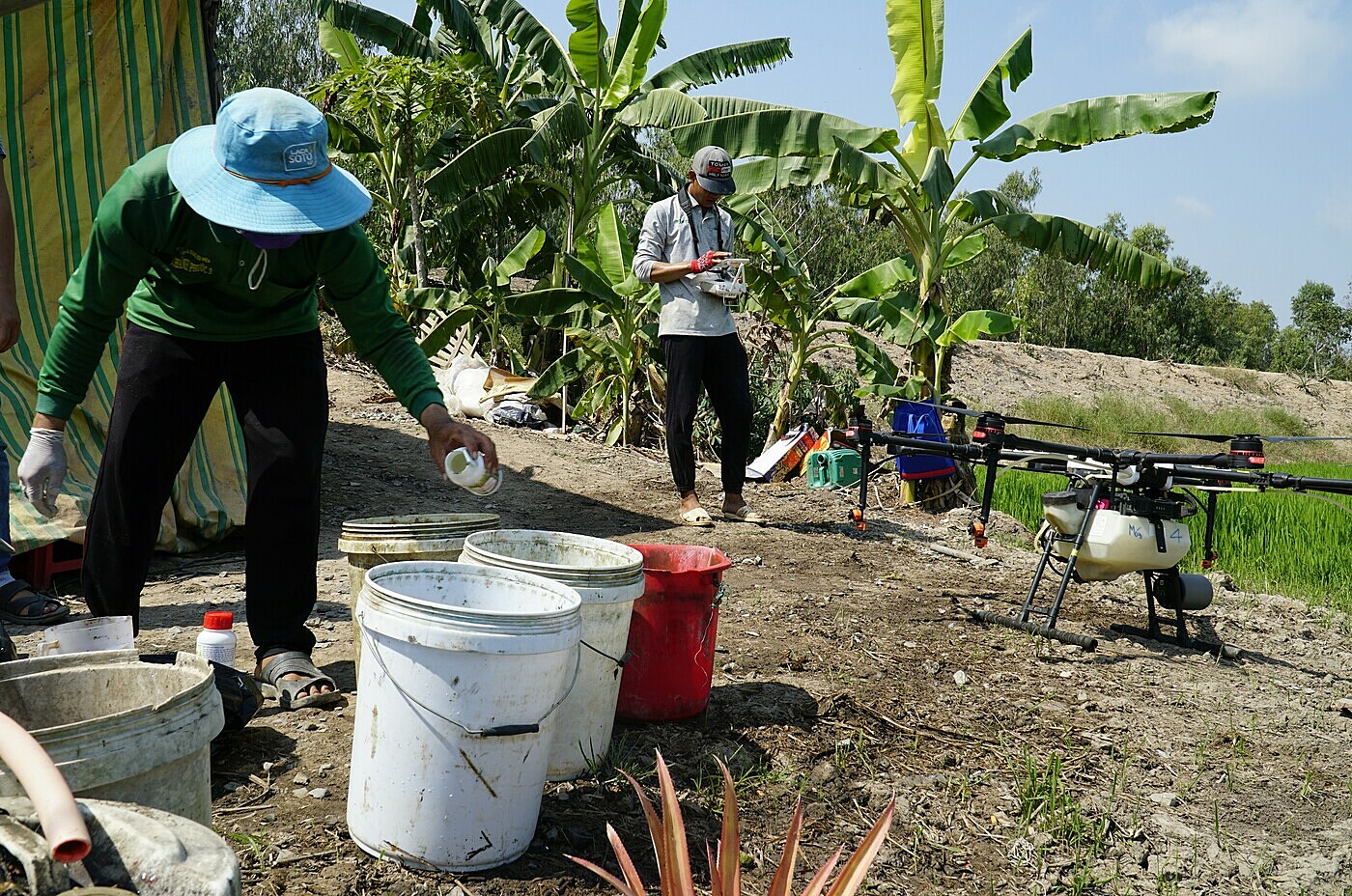 |
Farmers using aerial spraying on rice paddies. Photo: Ngoc Tai |
Farmers using aerial spraying on rice paddies. Photo: Ngoc Tai
Dr. Ho Van Chien, former director of the Southern Plant Protection Center, believes farmers themselves are contributing to pesticide resistance. "They spray not necessarily for crop safety, but for their own peace of mind," he said.
Chien explained that farmers often prefer highly toxic chemical pesticides for their immediate effect. They tend to avoid biopesticides, which are slower-acting but safer and preserve natural predators. This disrupts the ecosystem, allowing harmful insects to evolve and develop stronger resistance.
He cited research showing that brown planthoppers can produce 65 generations per year. By the 56th generation, their resistance to Buprofezin increases 3,600-fold. A 2017 survey by the Southern Plant Protection Center in Tien Giang province found that the 6th generation of brown planthoppers exhibited 180-fold resistance to Nitenpyram, with no signs of slowing down.
"Continuous preventative spraying and repeated use of the same pesticide are the surest ways to encourage pest evolution," Chien said.
Associate Professor Dr. Nguyen Minh Chau, former director of the Southern Fruit Research Institute, explains that farmers' focus on high yields leads to overuse of fertilizers and growth stimulants. This creates lush, densely planted fields that attract more pests, necessitating further pesticide use – a difficult cycle to break.
"Higher yields mean higher costs, and more spraying leads to more pests," Chau said.
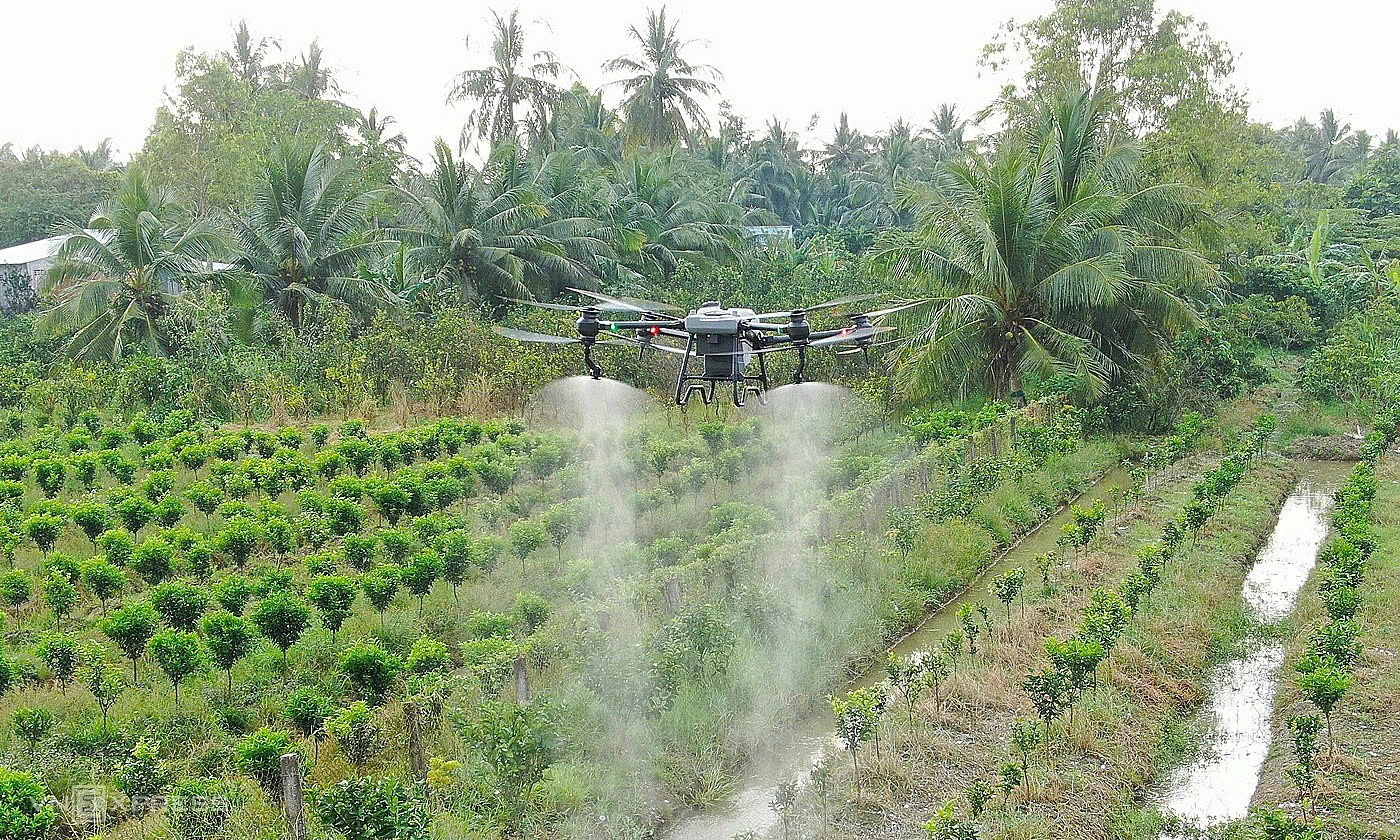 |
A drone spraying pesticides in an orchard in Ca Mau. Photo: Chuc Ly |
A drone spraying pesticides in an orchard in Ca Mau. Photo: Chuc Ly
He believes that organic farming and ecological preservation are the way forward. He cites Malaysian durian farmers who plant sparsely and avoid pesticides, resulting in lower yields but higher prices due to superior quality. They only harvest naturally ripened fruit, building consumer trust.
Similarly, Japanese consumers readily pay 10 USD for a domestically grown red mango but are less interested in imported ones at 1 USD, despite similar appearances.
"Vietnam's Ri 6 durian and many other native fruits are delicious, and many consumers are willing to pay a premium for them. We need to focus on cleaner, safer production to strengthen the domestic market," Chau shared.
Experts suggest several strategies to reduce reliance on chemical pesticides in Vietnam: promoting ecological farming practices, including introducing natural predators like parasitic wasps and ladybugs; synchronized farming to avoid peak pest seasons; rotating pesticides to prevent resistance; and prioritizing biopesticides, which are slower-acting but more sustainable and environmentally friendly.
Ngoc Tai




